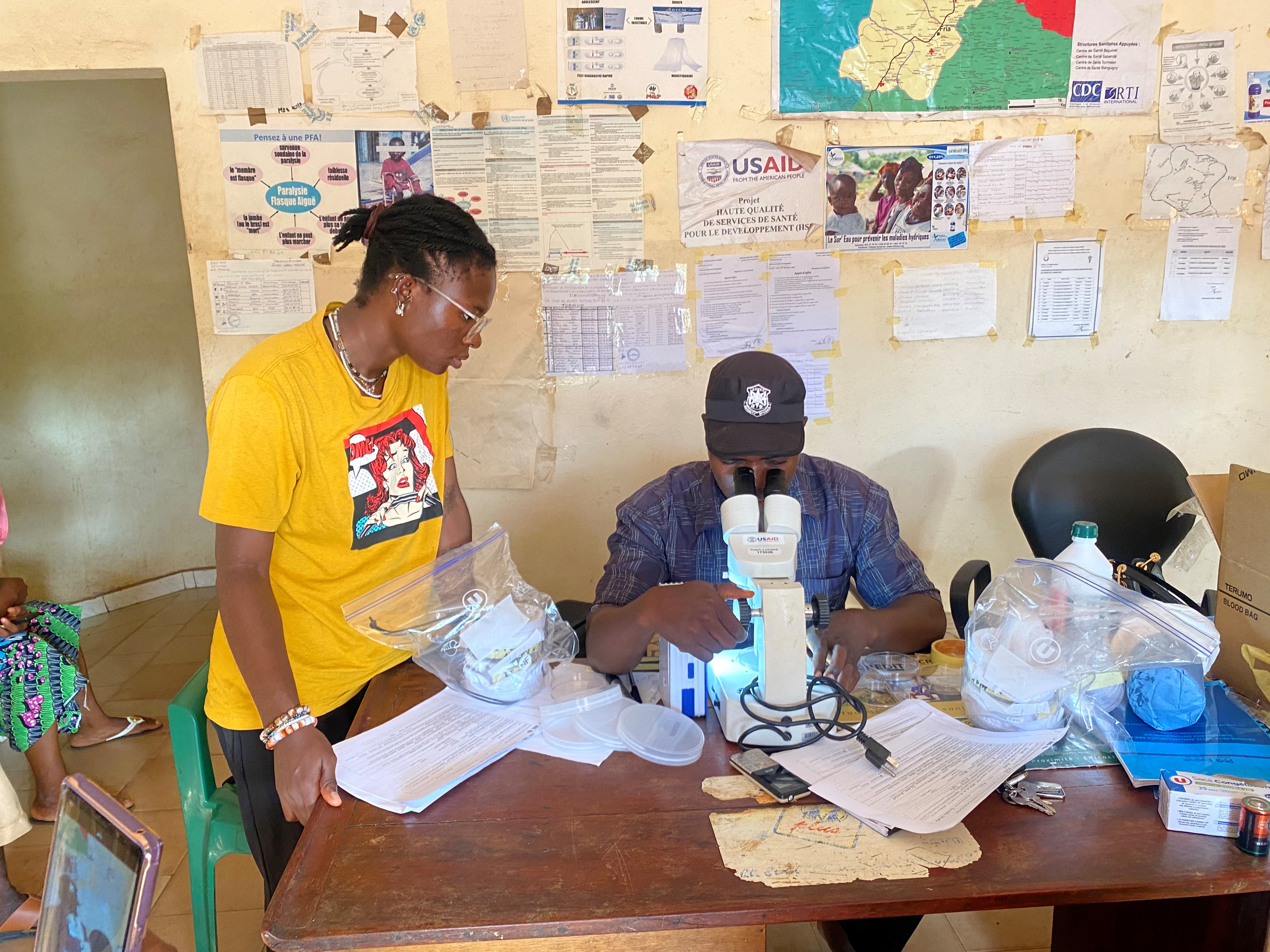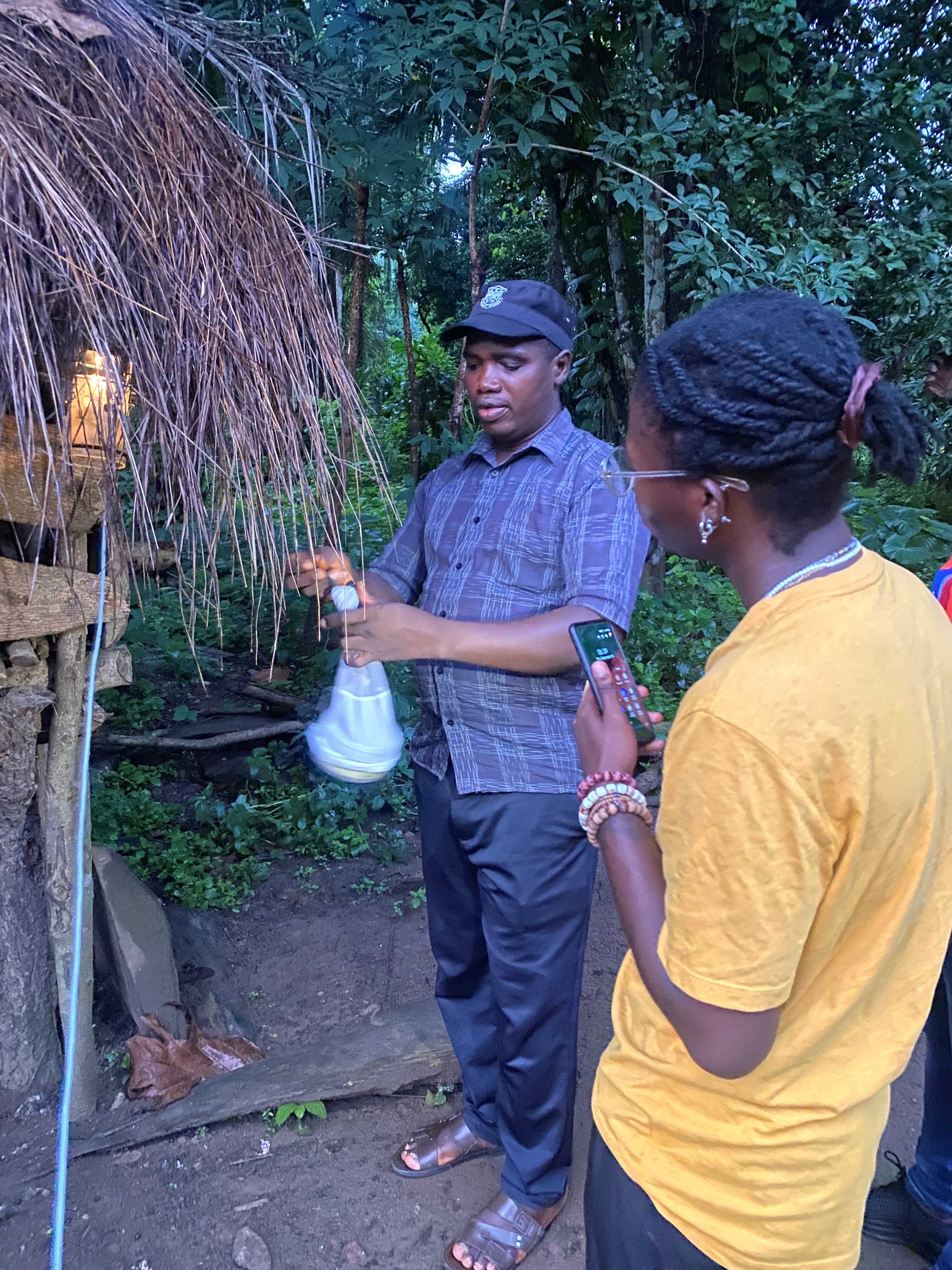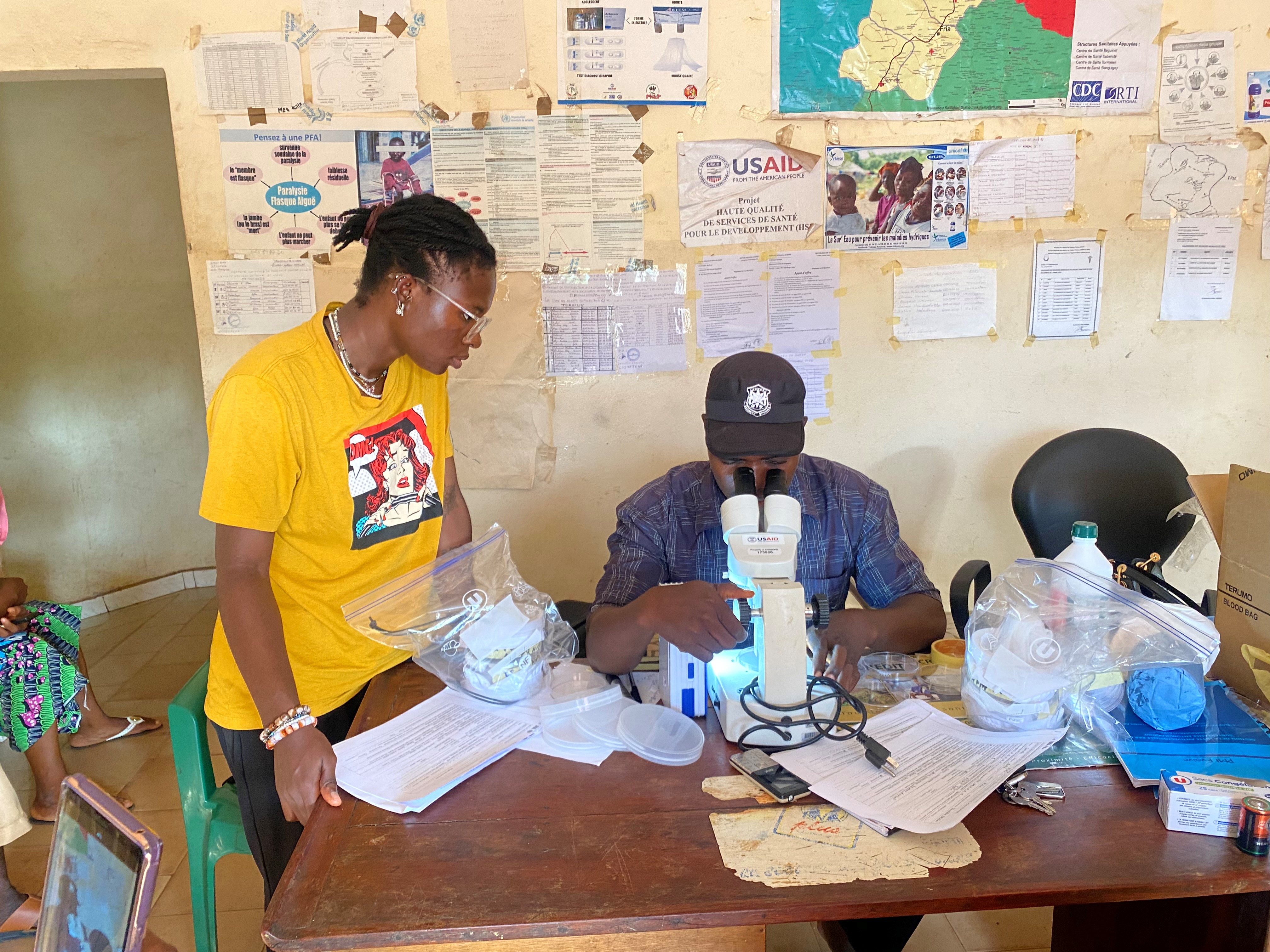Growing up in Albany, New York, Blessing Uzoeshi didn’t spend much time thinking about mosquitoes. Now as a Peace Corps volunteer serving in Guinea, she thinks about them a lot, as she supports her community to learn more about malaria-transmitting mosquitoes and make strides in malaria prevention efforts.

Guinea’s 12 million residents are at risk of contracting malaria, including the approximately 12,000 people who live in the town of Tormelin, a farming community where Blessing serves as a public health volunteer. In this role, she conducts outreach to pregnant women, providing education on malaria risk and prevention, since pregnant women and their babies can be at increased risk for complications due to malaria. Recently, she was trained to take on a new role in mosquito monitoring, as part of a collaborative initiative between the U.S. President’s Malaria Initiative (PMI) and the Peace Corps.
Community-based mosquito monitoring, a form of entomological surveillance, is an approach used in some countries to collect detailed information about mosquitoes. Data about their geographical distribution, resting and feeding habits, and other behaviors are needed to inform vector control methods that prevent malaria transmission—such as the distribution of insecticide-treated nets (ITNs). While this work is often led by trained scientists and vector control staff, community-based entomological surveillance (CBS) is an alternative approach in remote regions where local residents are trained to conduct mosquito collection.
In Guinea, the PMI Evolving Vector Control to Fight Malaria Project (PMI Evolve) is working with the National Malaria Control Program (NMCP) to help determine the drivers of malaria transmission in four high-burden areas, including Fria Prefecture, where Blessing lives. According to Yansane Alhousseny, the area’s entomological focal point, Fria Health District has the highest malaria incidence rate in the region, but there had been no entomological surveillance within affected communities, so he and his colleagues lacked the data they needed to make informed decisions about vector control.
Earlier this year, PMI Evolve trained Yansane and his counterparts in three other districts to overcome this challenge. “I was trained on the techniques of mosquito collection and identification in June 2023. In turn, I trained community volunteers from the Tormelin sub-prefecture on mosquito collection and identification techniques,” says Yansane. “After the training, these community volunteers collected mosquitoes in June and September 2023. This activity, which is a first in the prefecture of Fria, will provide data on malaria transmission, including the proportion of mosquitoes infected in Tormelin. This information will serve to raise awareness among the population and to develop our interventions at the community level.”

Blessing and four other Peace Corps volunteers in the high-burden communities took part in an online training to learn how to support the community mosquito collectors in their work. She is now providing supervision to Tormelin’s two community volunteers, to ensure that they are following the protocols they learned during training. She is also liaising with Yansane, who is 29 kilometers away from Tormelin, too far for him to regularly perform the supervision needed.
“Blessing’s involvement will allow close supervision and follow up on the others involved and will also enable us to think about expanding entomological surveillance into neighboring communities,” says Yansane.
Malaria awareness is a big part of my job here,” says Blessing. “This role is important because we’re searching and implementing ways to prevent malaria-related deaths. Through mosquito surveillance, we can identify the types of mosquitoes in our community and share this information with others who are working to reduce the transmission of malaria.”
Several activities are underway to advance Guinea’s entomological surveillance capacity to support malaria prevention and vector control efforts, which include strengthening mosquito collection processes and laboratory and insectary capabilities. However, this initiative with the Peace Corps is a fundamental example of how PMI is leveraging in-country resources to maximize the impact of malaria programming. These efforts will increase the effectiveness of mosquito monitoring and contribute to general malaria control activities that better protect people living in high-risk communities.


